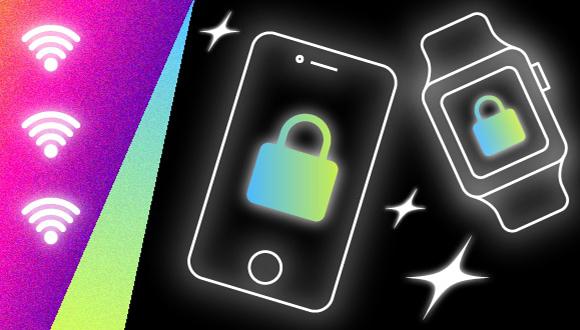
These days, your daily routine likely revolves around multiple smart devices. Whether you’re ordering groceries through your smart speaker, getting directions from your phone, or streaming the latest series on your smart TV, the time you spend now and, in the future, is directly tied to the technology you use.
When those devices are secure and running smoothly, your day will follow suit. That’s why week two of Cyber Month is all about device security. Whether it’s setting up strong passcodes, backing up your files, or knowing how to be safe connecting to public Wi-Fi, securing your devices now will be something your future self will be grateful for.
Securing your smart devices
Your phone and laptop are important but certainly aren’t the only devices that need to be secured. Smart devices like your speakers, watches, thermostats and other appliances are all connected to the internet – and if they’re not secured, they can be used to snoop, steal data, or even break into your home network.
This week, we’ll discuss small steps you can take to secure your gadgets like changing your default passwords (yes, even the one on your TV!) and disabling features, like Bluetooth, when you aren’t using them. We’ll also discuss setting up new devices, updating privacy settings, and how a few small steps can make a big difference in your future.
Storage and backups
We all have important files, from photos to personal documents and work projects. But what happens if your device is lost, stolen, or compromised by malware? Backing up your files ensures you won’t lose your documents if something unexpected happens.
There are many backup options available to you that rely on cloud storage or external hard drives. We recommend using a combination of at least two storage options for your most important data, to be extra safe in case one fails. This week, we’ll discuss how regular backups can protect you in the future, like making sure stressful situations – like your computer crashing before a project deadline – a lot more manageable.
Private and public networks
When you think about protecting your devices, you might not be thinking about those running your home network, such as your router. Since your Wi-Fi network is a gateway to all your connected devices, it’s extremely important to protect it from potential intruders (and possibly your next door neighbours). One of the easiest ways to stay safe is to change your default network name and password.
If you’re on the go, connecting to public Wi-Fi can be tempting. But public networks aren’t always safe. They can be easy targets for cyber criminals looking to steal your data or information. To protect yourself, avoid accessing sensitive accounts like banking or email on unsecured networks. And if you do need to access those accounts, consider using a virtual private network (VPN) for added privacy and security.
This week, we’ll talk about protecting your networks and your devices with simple steps to reduce disruptions now and later.
Looking ahead
We rely on our devices to stay connected so taking steps to make sure they’re secure can ensure they aren’t putting your data at risk. Take a moment to review your devices and make sure they are backed up, updated, and connected to secure networks.